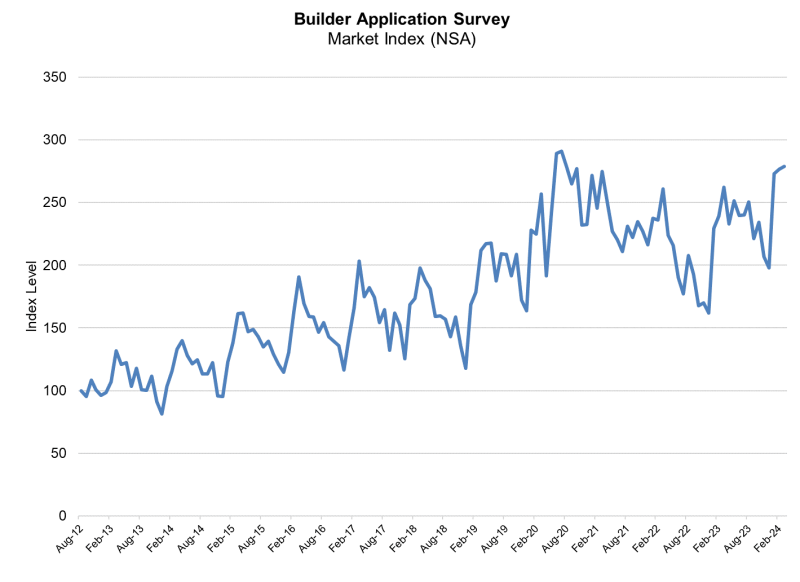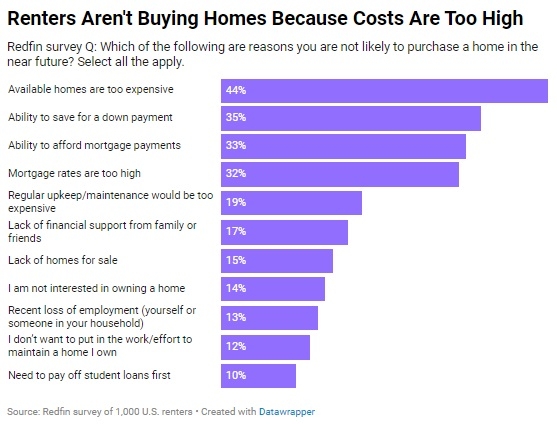Advertisement
New Study Examines Sacrifices in Pursuit of the American Dream

Some alarming numbers coming out of the MacArthur Foundation highlight that 52 percent of all Americans have had to make at least one major sacrifice in order to achieve their current level of housing, whether that’s as a renter or homebuyer. Whether it’s paying one’s mortgage or purchasing a home, more than half of the American population has had to cut back on one major aspect of their lives. For some, that’s furthering their education, for others, it’s getting married or having kids. These are major life developments that are now being stunted due to the horrific economic climate.
“There is no question one of the largest challenges this country faces is housing affordability, which is commonly mistaken for only impacting low income Americans,” said John H.P. Hudson, VP of regulatory affairs for Premier Nationwide Lending and Communications Committee Chair for NAMB—The Association of Mortgage Professionals. “The problem is multifaceted with everything from rising municipal developer impact fees, cost of materials and labor, regulations promoting tight credit, students loans, litigation risk, home prices ... the list is endless.”
One of the more troubling statistics from the "How Housing Matters Survey" indicates that 70 percent of those polled feel that we are currently in the worst of the economic climate or that the worst is yet to come. Another staggering statistic is that both renters and owners are spending roughly 30 percent or more of their income on housing. While for some, that number is clearly lower, for many, it’s much higher. While politicians and economists are cheering that the economic downturn is behind us, many of the respondents stated that they aren’t feeling any semblance of relief.
More than six in 10 adults believe it is at least fairly likely for a family that is struggling to keep their housing to have to take on an additional job or hours at work (82 percent said "very/fairly likely"), stop saving for retirement (73 percent), accumulate credit card debt (72 percent), or cut back on healthcare (62 percent). A majority of adults (55 percent) believe it is at least fairly likely that such a family will have to cut back on healthy, nutritious food, and just fewer than two in five believe such a family will likely move to a neighborhood that is less safe or has worse schools. Some 62 percent of distressed owners and three in four distressed renters (74 percent) have made at least one of these tradeoffs listed previously in the past three years. Among those indicating distress in paying their rent or mortgage, 27 percent have stopped saving for retirement, 23 percent have cut back on healthcare, and 23 percent have accumulated credit card debt.
“While homeownership continues to be the dream for most renters, this year’s How Housing Matters survey confirms our initial findings from last year: Americans want a more even-handed approach to housing policy,” said Geoffrey Garin, president of Hart Research Associates, the firm who conducted this research.
Fascinatingly, even amid all of this negativity towards housing, nearly 70 percent of those polled still hold out hope for owning a home one day. Of that same pool of individuals, two-thirds no longer believe in homeownership as a means through which to build wealth. Half of adults polled believe that owning a home isn’t anywhere near as attractive a proposition as it once was.
“Housing insecurity has become a fact of life for tens of millions of low and modest wage workers. We need the one-two punch of a comprehensive bipartisan fiscal plan and a vigorous housing agenda. Key public leaders need to step up and show political will and skill,” said Rick Lazio, former U.S. Representative from New York, and current leader of law firm Jones Walker’s affordable housing and housing finance practice.
“While I am not sure what the ultimate solution is, I am very glad to see the issue gaining traction as a national debate," said Hudson. "Perhaps a great place to start is with basic financial literacy in our education system to prepare consumers for buying their first home and putting them on a path for wealth creation."
About the author





